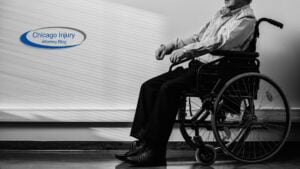The role of rehabilitation in workers’ compensation is a vital component in the journey of injured workers towards recovery and returning to the workforce. In this comprehensive article, we will delve into the frequently asked questions about vocational rehabilitation, particularly within the Division of Federal Employees’, and Longshore and Harbor Workers’ Compensation (DFELHWC). We will explore the crucial role that vocational rehabilitation plays in workers’ compensation claims, providing real-life examples and shedding light on the responsibilities of both employees and employers in the rehabilitation process.
We will discuss the significance of seeking guidance from a workers’ compensation lawyer and the invaluable insights gained from expert vocational assessments. We will touch upon the intersection of NDIS occupational therapy and rehabilitation counseling, emphasizing the importance of treatment and vocational rehabilitation. We will address the pivotal question of “Injury. Rehabilitation. Then what?” and encourage readers to explore further topics related to workers’ compensation. This article aims to provide a comprehensive understanding of the intricate role of rehabilitation in workers’ compensation, offering valuable insights and practical guidance for all stakeholders involved in the process.
Vocational rehabilitation plays a crucial role in the workers’ compensation system, aiming to assist injured employees in returning to work through a range of specialized services and programs.
Vocational Rehabilitation FAQs
For injured workers navigating the complexities of vocational rehabilitation, understanding the key aspects and implications is vital to achieving successful return-to-work outcomes.
Division of Federal Employees’, and Longshore and Harbor Workers’ Compensation (DFELHWC)
The Division of Federal Employees’ and Longshore and Harbor Workers’ Compensation (DFELHWC) operates under the U.S. Department of Labor, overseeing the Longshore program and providing essential support to injured workers through its dedicated claims examiners.
The DFELHWC plays a crucial role in administering workers’ compensation benefits under the Longshore and Harbor Workers’ Compensation Act. This Act provides coverage for employees who work on navigable waters in the U.S. and its adjoining areas, ensuring that they receive compensation for work-related injuries or illnesses.
Within the DFELHWC, Longshore Claims Examiners hold a pivotal role in evaluating and processing claims, working closely with injured workers, employers, and medical providers to facilitate timely and fair resolution of claims. Their expertise in understanding the complexities of the Longshore program is instrumental in ensuring that injured workers receive the benefits they are entitled to.
The Vital Role of Vocational Rehabilitation in Workers’ Compensation Claims
Vocational rehabilitation plays a vital role in the successful resolution of workers’ compensation claims, as it addresses vocational barriers, facilitates vocational outcomes, and provides essential rehabilitative services guided by vocational rehabilitation counselors.
This process is particularly crucial because it ensures that individuals who have suffered work-related injuries or illnesses can effectively reintegrate into the workforce. By overcoming vocational barriers, such as physical or cognitive limitations, vocational rehabilitation equips these individuals with the skills, training, and support they need to pursue meaningful employment.
Through tailored vocational assessments and counseling, vocational rehabilitation counselors play a pivotal role in guiding injured workers toward positive vocational outcomes. Whether it involves job retraining, career exploration, or job placement assistance, these professionals offer invaluable expertise in aligning individuals’ abilities with suitable employment opportunities.
Examples of Vocational Rehabilitation
Illustrating real-world examples of vocational rehabilitation programs and their positive impact on injured employees sheds light on the tangible rights and benefits available through vocational rehabilitation specialists.
Employee Responsibility
In the vocational rehabilitation process, injured workers carry a significant responsibility in actively engaging with the prescribed return-to-work plan and fully participating in the vocational rehabilitation process to optimize their recovery and reintegration into the workforce.
It is essential for injured workers to demonstrate commitment and persistence in following the recommendations provided by healthcare professionals and vocational rehabilitation counselors. This may involve attending medical appointments, adhering to treatment plans, and actively participating in vocational assessments and training programs to enhance their employability. Compliance with these aspects plays a crucial role in facilitating a successful return to suitable employment while promoting their physical and psychological well-being.
Moreover, injured workers should communicate openly with their rehabilitation team, providing feedback on their progress, challenges, and preferences to ensure that the vocational rehabilitation process is tailored to their specific needs and goals. By actively engaging in this manner, injured workers can take ownership of their recovery journey, actively paving the way for a smooth transition back to the workforce.
Employer Responsibility
Employers are tasked with the responsibility of providing necessary support and accommodations to facilitate the smooth implementation of vocational rehabilitation assistance for injured workers as part of their workers’ compensation obligations.
This involves not only ensuring a safe and conducive work environment for returning employees but also offering tailored workplace accommodations when needed. Employers should actively engage in the vocational rehabilitation process, cooperating with healthcare professionals and rehab specialists to integrate suitable adjustments and training programs.
Maintaining open communication with the injured worker and their rehabilitation team is essential to understand and address specific needs, effectively contributing to their successful reintegration into the workforce.
Speak to a Workers’ Compensation Lawyer
Seeking legal guidance from experienced workers’ compensation lawyers, such as those at Rose Klein & Marias LLP, can provide invaluable insights and advocacy in navigating vocational rehabilitation rights and related legal matters.
Understanding the complexities of vocational rehabilitation rights within the framework of workers’ compensation can be daunting. With the staunch support of legal experts, individuals can elucidate their entitlements, including access to suitable job training programs, educational aid, and re-employment assistance.
The expertise of reputable law firms like Rose Klein & Marias LLP in this area can facilitate negotiations, appeals, and ensuring fair treatment, ultimately securing a beneficial outcome for the injured party.
Real People – Real Lives
Real stories of individuals navigating the challenges of vocational rehabilitation offer profound insights into the impact of these services on the lives of injured workers and the broader workers’ compensation landscape.
Expert Vocational Assessments
Comprehensive vocational assessments are integral to the vocational rehabilitation process, as they provide essential data and insights through vocational testing to inform tailored rehabilitation strategies and interventions.
These assessments play a crucial role in understanding an individual’s abilities, limitations, and potential to return to work after an injury or disability. By evaluating vocational interests, aptitudes, and transferable skills, the assessments help in identifying suitable job options and vocational goals.
Vocational assessments aid in determining the need for training, job accommodations, or career counseling, ensuring that the rehabilitation plan is individualized and effective. They serve as a foundation for developing personalized vocational rehabilitation programs aimed at enhancing the individual’s employability and reintegration into the workforce.
NDIS Occupational Therapy
The inclusion of NDIS occupational therapy within vocational rehabilitation frameworks underscores the multi-faceted approach that encompasses comprehensive rehabilitation counseling, reflecting a holistic commitment to addressing individuals’ vocational needs and aspirations.
This integration integrates evidence-based therapeutic interventions, tailored to address the specific needs and challenges individuals may face in their vocational pursuits. By incorporating occupational therapy into the broader vocational rehabilitation process, the emphasis is not solely on physical or cognitive impairments but also on identifying meaningful and sustainable employment opportunities for individuals.
It recognizes the intrinsic link between an individual’s well-being and their vocational fulfillment, striving to foster independence and participation in the workforce.
Rehabilitation Counselling: Treatment and Vocational Rehabilitation
The fusion of rehabilitation counseling with treatment modalities forms a cornerstone of comprehensive vocational rehabilitation, emphasizing a collaborative approach that integrates therapeutic interventions with vocational rehabilitation processes.
This integration allows individuals with disabilities or injuries to access a holistic approach toward their recovery and reintegration into the workforce. By addressing both the psychological and practical aspects of rehabilitation, this collaborative effort aims to not only improve individuals’ physical well-being but also give the power to them with the necessary skills and support to pursue meaningful employment opportunities. It underscores the importance of considering the individual’s unique needs, aspirations, and challenges within the broader framework of vocational rehabilitation, leading to more tailored and effective treatment plans and counseling strategies.
Injury. Rehabilitation. Then what?
The progression from injury to rehabilitation raises the pivotal question of ‘then what?’ as injured workers navigate the complexities of vocational rehabilitation plans and the associated workers’ compensation framework.
Explore topics
Exploring diverse topics related to vocational rehabilitation offers valuable insights into the multifaceted nature of the rehabilitation process and the expertise of Certified Rehabilitation Counselors in guiding injured employees through their vocational rehabilitation journeys.
Within vocational rehabilitation, considerations such as skill development, job placement, workplace accommodations, and the psychological adjustment of individuals play essential roles in achieving successful outcomes. The Certified Rehabilitation Counselor is equipped with the knowledge and skills necessary to address these complex areas, providing personalized support and guidance tailored to the unique circumstances of each individual.More articles by this author
Further articles authored by specialists in the field of vocational rehabilitation provide a wealth of knowledge and insights into the evolving landscape of workers’ compensation and the transformative impact of vocational rehabilitation. Reimagining Case Management: How Hospitality Enhances the Journey of Injured Workers The reimagining of case management through the lens of hospitality offers a unique perspective on enhancing the journey of injured workers navigating the intricacies of vocational rehabilitation within the workers’ compensation framework.
This approach prioritizes the individual needs and experiences of the injured workers, integrating the nurturing and empathetic elements of hospitality into the support process. By fostering a client-centered ethos, case managers can cultivate an environment of trust and collaboration, ensuring that the rehabilitation journey is not only effective but also respectful of the worker’s dignity and well-being.
Embracing hospitality principles in case management can lead to improved engagement, satisfaction, and ultimately, better outcomes for all parties involved.
The Power of Case Management in Workers’ Compensation Claims: Transforming Trajectories for Injured Workers The pivotal role of case management in workers’ compensation claims is underscored by its transformative influence in guiding injured workers through the complexities of the vocational rehabilitation process, led by the expertise of Certified Case Managers.
Certified Case Managers play a crucial role in coordinating medical treatment, facilitating the return-to-work process, and ensuring that injured workers receive the necessary support and resources for their recovery.
Through personalized assessments and close collaboration with stakeholders, including healthcare providers, employers, and legal representatives, case managers strive to optimize the rehabilitation outcomes and expedite the return to productive employment for the injured individuals, thereby minimizing the financial and emotional hardships associated with workplace injuries.
The Crucial Role of Early Intervention Nurse Case Management in Workers’ Compensation Return-to-Work The crucial role of early intervention nurse case management in workers’ compensation is instrumental in facilitating successful return-to-work outcomes and the seamless implementation of vocational-rehabilitation services for injured workers.
This proactive approach involves early assessment of the injured worker’s needs, coordination of care, and collaboration with healthcare providers to develop personalized treatment plans.
By identifying barriers to recovery and promptly implementing targeted interventions, early intervention nurse case management aims to mitigate the impact of injury and expedite the return-to-work process.
The engagement of a nurse case manager enhances communication among stakeholders, ensuring alignment of medical care, vocational services, and employer expectations to promote efficient and sustainable reintegration into the workforce.
Frequently Asked Questions
What is the role of rehabilitation in workers’ compensation?
The role of rehabilitation in workers’ compensation is to help injured workers recover and return to work as soon as possible. This can include physical therapy, vocational rehabilitation, and other services to improve the worker’s overall health and ability to work.
Who is responsible for providing rehabilitation services in workers’ compensation cases?
The employer or their insurance company is typically responsible for providing rehabilitation services in workers’ compensation cases. They are required to cover the costs of necessary medical treatments, including rehabilitation, for injured workers.
What types of rehabilitation services are typically covered by workers’ compensation?
Workers’ compensation usually covers a variety of rehabilitation services, including physical therapy, occupational therapy, vocational rehabilitation, and psychological counseling. These services aim to help injured workers recover and return to work in a safe and timely manner.
Is rehabilitation mandatory in workers’ compensation cases?
In most cases, rehabilitation is not mandatory in workers’ compensation cases. However, it is highly recommended as it can greatly benefit injured workers by improving their recovery and return to work outcomes.
How does rehabilitation benefit injured workers in workers’ compensation cases?
Rehabilitation can benefit injured workers in many ways, such as improving their physical and mental health, helping them manage their pain, and assisting them in finding suitable employment. It can also reduce the time it takes for workers to return to work and decrease the overall cost of the workers’ compensation claim.
What should I do if I am not satisfied with the rehabilitation services provided by my employer or their insurance company?
If you are not satisfied with the rehabilitation services provided, you can seek a second opinion from another healthcare provider or file a complaint with your state’s workers’ compensation board. It is important to communicate any concerns or issues with the rehabilitation services to ensure you receive the best possible care.





